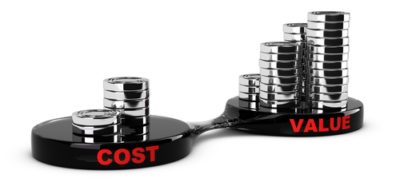“Abe's Heating and cooling were professional and on time. they helped me with two time sensitive projects and did excellent work. I know who I'll be calling if I should ever need an HVAC technician.”
Blog
 As the world continues to move toward clean energy production, geothermal heating and cooling systems have been getting more attention. If you are considering a geothermal energy system for your home, or are just interested in learning more about geothermal, it is important to understand what it is, how it works and what the pros and cons are of this type of system.
As the world continues to move toward clean energy production, geothermal heating and cooling systems have been getting more attention. If you are considering a geothermal energy system for your home, or are just interested in learning more about geothermal, it is important to understand what it is, how it works and what the pros and cons are of this type of system.
Simply put, geothermal energy is naturally derived from the heat contained in the rock and fluids beneath the Earth’s crust. It can be accessed from a few feet to several miles below the surface and can be extracted and utilized for different purposes. One of those is heating and cooling a home.
Many home energy systems rely on burning fossil fuels. Others use the air, either pulling in heat from the outdoors to warm a home or pushing heat out to cool it. Fossil fuels have many negative impacts on our health and the environment. Heat pumps that rely on the outdoor air are subject to fluctuations in temperature that make them inefficient in areas of extreme heat or cold. Geothermal systems take advantage of the constant temperatures below ground that aren’t subject to changes in the weather or seasons.
A geothermal system consists of a closed loop created with narrow pipes that circulate water below ground and exchange heat between your home, the heat pump and the Earth. Rather than generating heat, the loop simply moves it — either into your home in winter or out of your home in summer.
The main downside to a geothermal heat pump system is the high initial cost of installation. Before that scares you away, however, consider why a geothermal system is worth the investment.
Is geothermal right for you? Contact ABE Heating and Cooling today to learn more. We are located in Brighton, Colorado, and serve the entire Denver Metro Area.